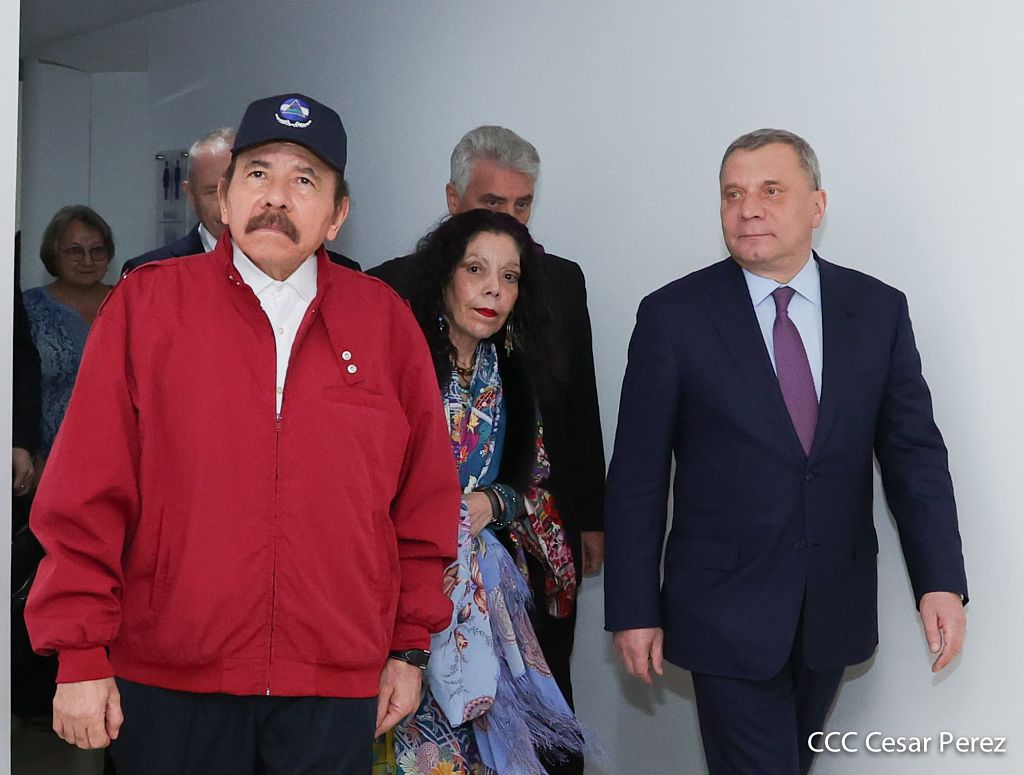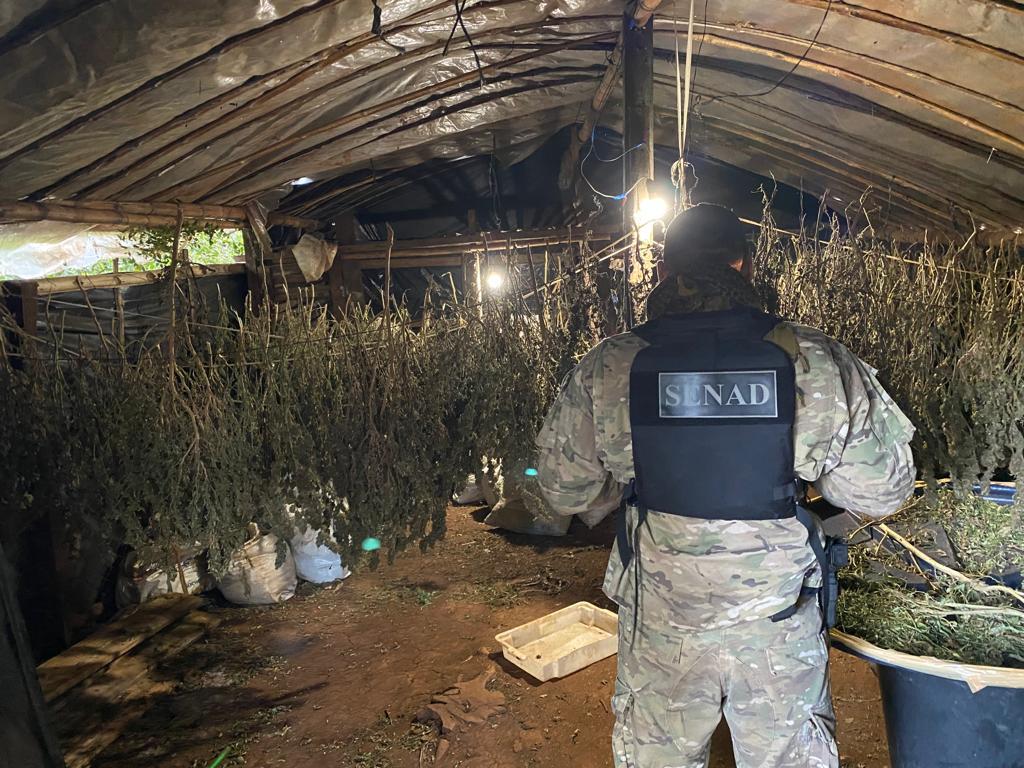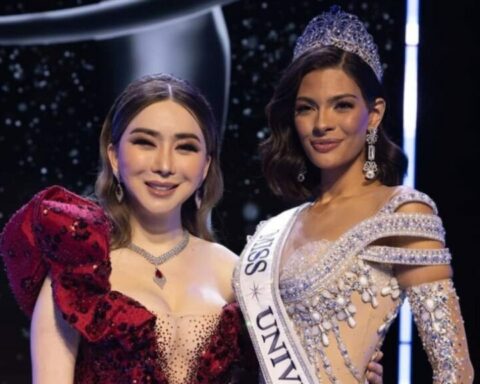United States, Canada, United Kingdom and the European Union have imposed a battery of sanctions against the Russian government and leaders, including President Vladimir Putin, with the intention of pushing the Soviet leader back from his invasion of Ukraine. However, the consultant on issues of national security and organized crime, Douglas Farah, considers that the sanctions “many times they do not lead to the future that one hopes for”, as has been seen “in Nicaragua and Venezuela”.
In an interview with the program This week, which is broadcast this Sunday, the researcher clarifies that the international sanctions against Russia will have a “real impact” on the Latin American financial sector. “In the Russian banks that are operating in Venezuela and Cuba there is a lot of triangulation of products to improve oil production in Venezuela, through China.”
“There are many Russian front groups, closely linked to the Russian state, which are based —more than anything— in Santiago de Chile, but operate with great force in Nicaragua and Venezuela. These groups, which are businessmen, supposedly from the private company, but which are from the Russian State, which can be sanctioned and can lead to certain consequences”, he details.
For the president of the firm IBI Consultants, in Washington DC, it was “obvious” that Putin wanted to invade Ukraine, and that the international community could not prevent it. “(Invade Ukraine) I was going to do it no matter whatunder any pretext, and in the end he didn’t have the real pretext and he did it anyway.”
Russia’s invasion of Ukraine has been a war foretold, and yet the international community could not prevent and stop it. Was this outcome inevitable?
It was not unavoidable. We have seen the repetition of these sequences of events, a little bit even in Nicaragua, we knew how (Daniel) Ortega was going to emerge as dictator and his steps towards the massive violation of human rights; we have seen in Venezuela, we have seen in other places. I think that the international community, especially in the case of Russia, where there are very large economic interests, had the illusion that it was not going to dare, and in the end, they miscalculated; but it would have been, obviously not easy, but it would have been possible to avoid this.
Some analysts have argued that this crisis could have been avoided, or at least disarmed Putin’s pretext of invading, if Ukraine had proclaimed itself a neutral state, ruling out eventual participation in NATO. What is your opinion?
It’s possible, though I don’t think it would be wise. A country that begins to give up its sovereign rights to avoid an invasion sooner or later ends up being invaded anyway, as we have seen with Hitler in Britain in World War II. So I think that may have slowed things down a bit, but it seems obvious to me that Putin was looking to invade. He was going to do it any way, with any pretext, and in the end he didn’t have the real pretext and he did it anyway.
The people and the Government of Ukraine are resisting, we do not know how this crisis is going to evolve. What is the future of Ukraine under Putin’s plans? Where does the ultimate goal of this invasion point?
Putin wants to install a regime that is very favorable to him and to Russia. He is looking for access to the sea, to ports that are not frozen during the winter, a series of strategic things, which perhaps in a 19th century world would be reasonable or considered normal. In this case, in this world, it’s open aggression, where he wants to end it. It seems to me that the people of Ukraine are very willing to resist, and I believe that the price Putin has paid with the invasion has been much higher than he himself believed when it began. The possibility is high that there will be an armed resistance for a long time, bleeding Russia dry. It will not be: enter, impose a favorable regime and leave; that will no longer be possible.
And what impact could the economic sanctions announced by the United States and the European Union have on Russia? Where do they point?
They are very strong sanctions, but as we have seen in Nicaragua and Venezuela, sanctions often do not lead to the future that one hopes for. Russia has a way to exploit the holes in the international system, just like Daniel Ortega; and it has the possible advantage of China helping Russia evade sanctions, which would be a huge loophole.
But cutting off access to the dollar and freezing the assets of people close to Putin, who have a lot of property, especially in Britain, and those things are going to have an impact. The idea is to collapse the Russian economy, but also to create divisions within the oligarchy close to Putin, from the people who are suffering the consequences firsthand. As we have seen, let’s say, in El Salvador, with the consequences of taking away the visas of many people close to (Nayib) Bukele, it has brought them many internal problems because they want to go visit their children, or their children have had to leave universities in the United States.
There are ways to create discontent within the inner circle, which is—in the short term—your goal. In the long term, the Russian economy, even with China, is not going to be able to survive long. He’s not going to be able to grow up and do things. It can survive, we have already seen in Syria, that (Bashar el) Assad has survived; we have seen in Nicaragua, Ortega has survived; (Nicolás) Maduro has survived, but they do not have countries that are worthwhile in economic terms.
China Paper
What role does China have in this crisis? Is it a strategic ally? Does it run any risk in the alliance it is maintaining with Putin?
It is a convergence of interests, where both countries have specific interests, especially in places like Latin America, where both want to displace the influence of the United States. But in real terms there is also a lot of competition between them.
China abstained from voting, in the (UN) Security Council, against Russia. (China) is thinking how it could be an opportunity to enter with even more force in Africa, in Latin America, in other places, without having the Russians in competition, they may be evaluating that.
The Russian economy, in real terms, and what it buys from China is very small. In other words, they do not have great risks in economic terms if they supported Putin. Putin has a lot of serious risks if they don’t support him, but the other side doesn’t.
(The Chinese) are debating all of that: what does it entail? If they want a stronger relationship with the United States, maybe that’s a bigger risk than not dealing with Putin. They are at a very interesting crossroads, and we don’t know so far, because they have talked about not supporting the invasion, they didn’t vote for Russia either, but they didn’t vote against it either. I think they are in a dance right now, trying to define where they fall.
The National Security Adviser for Latin America, Juan González, has said that the sanctions against Putin will have an impact on countries such as Nicaragua, Cuba and Venezuela, whose governments are allied with Russia. What is the impact they could have?
The real impact in Latin America has been in the financial sector. In the Russian banks that are operating in Venezuela and Cuba there is a lot of triangulation of products to improve oil production in Venezuela, through China. There are many Russian front groups, closely linked to the Russian state, which are based —mostly— in Santiago de Chile, but operate very strongly in Nicaragua and Venezuela. These groups, which are businessmen, supposedly from the private company, but which are from the Russian State, which can be sanctioned and can lead to certain consequences.
The truth is that Russia, in Nicaragua, does not have enormous economic investments. They are not going to freeze anything that will bring down the government of Daniel Ortega, but they do have listening centers, electronic intelligence centers and all that. The idea is to cut these companies to very low levels in the region.
How is Russian activism interpreted in recent weeks in Nicaragua, Cuba and Venezuela? The deputy prime minister came, then the chairman of the Duma. They always talk about expanding strategic cooperation in technological and also military matters.
Obviously, Russia is seeking to give the appearance of not being isolated, say “we have friends, here we are”, just as Daniel Ortega does when he needs international support, he even recognizes countries that do not exist. What Russia is looking for is more in terms of having access to deep-water ports, inter-oceanic cables, electronic espionage intelligence centers, which can reach much further into the United States, from Nicaragua than from Russia.
Russia does not have the option of offering a lot of money or large projects, they are not like the Chinese who come in to create ports and thousands of other things. Russia has promised a lot and has actually delivered nothing. What they can offer, of great value to Daniel Ortega, Nicolás Maduro and the Cubans, is the technology to put pressure on the civilian population, to repress, to maintain states of dictatorship, they are very good at that, to provide the training, the equipment and machinery to keep the regimes in power, that is important for them, and I imagine that for Daniel and that group as well.
Benefit for Mature
Returning to the impact of the war in Ukraine. What would be the consequences at the level of the international economy?
It will have a strong impact in terms of the energy sector, especially in Europe and the United States. Other allies are trying to supply natural gas to Europe to replace what they brought from Russia, so that there are no very serious consequences. Inevitably, the price of oil is going to skyrocket, that is going to affect countries like Nicaragua that import all their oil, but at the same time it is going to favor Venezuela a lot. It is the first time, in many years, that a barrel of oil will be above one hundred dollars a barrel; when he was at twenty dollars, Maduro was fried, at a hundred he can survive a little more. There is no universal impact, certain sectors will take advantage.
Is there any room for a diplomatic way out of the Ukraine crisis at the moment?
It depends on the impact of the sanctions and the invasion in Ukraine itself, that is, if the cost is very high. I was surprised that thousands (of citizens) came out to protest inside Russia, with the consequences of being arrested. That indicates a very strong malaise within the town, it is the same as in Nicaragua, making the decision to go to the streets in those circumstances, is not a small thing.
I get the impression that Putin has made the decision on his own, and he is going to keep it until he himself has to sit down to negotiate, or see that the problem has turned out to be so costly, that it is not worth it, and look for an elegant way out. That is yet to be seen. The resistance has been much more than they thought, the cost has been much higher; the fact that people from Chechnya (are ready) to fight indicates to me that the Russian troops are not as strong and well-prepared as they themselves had thought. So that can lead to a very high internal cost, combined with the sanctions, it can lead Putin to rethink what he did.
*Watch the full version of this interview on the Esta Semana program, which will air tonight on the CONFIDENCIAL channel on YouTube.








